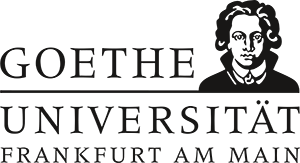About the study
Since 2011, the Federal Ministry of Education and Research (BMBF) has been funding several programmes for Islamic theological studies and religious education studies at German universities. The primary aim is to train teachers for Islamic religious education and Muslim theologians as well as to qualify students for community education, social work and spiritual care in Muslim contexts. Graduates of these study programmes have been entering the job market since 2014. It can be assumed that a majority of these recent graduates will end up in the education sector (schools, universities), the social sector and the fields of employment connected with religious communities
However, as of yet, there is no reliable information about the ratio and means of their employment in these sectors. More questions that are as yet unanswered, i.e. what other professional fields have emerged, how the graduates would rate their employment situation and how the study programmes that have already produced graduates should be evaluated with regard to the qualification for different occupational activities.
This study takes up precisely these questions. It is a collaboration of the Academy for Islam in Research and Society with the University of Giessen (Prof Naime Cakir, Chair of Islamic Theology with a focus on Muslim lifestyles) and the University of Mainz (Prof Constantin Wagner, Chair of Educational Science with a focus on heterogeneity).
Aims
On the basis of quantitative and qualitative surveys, this study analyses several themes: the transition of graduates from university to the workforce, their employment and educational career paths after graduation, the positive and negative conditions associated with the training and fields of work as well as the individual factors of a successful career. The quantitative approach will provide an overview of the selected professional fields, the positions as well as the employment situation of the alumni, thereby determining which factors facilitate success (or a lack thereof) with regard to which professional fields. The qualitative part incorporates the experiences and assessments of the alumni, and then asks what patterns, personal histories and approaches open up (or close off) certain possibilities and what perspectives do the respondents have with regard to the future.
Output
In addition to the relevance of the findings for the social effects of Islamic theology and religious education studies as well as the curricular design of the study programmes, the survey aims to contribute to the research of university programmes and the processes of professionalisation and transition. Furthermore, the results should help to better adapt the existing study programmes in Islamic theology and religious education studies to the needs of the labour market, thereby increasing their efficiency and attractiveness.
Project Leaders
At the AIWG: Dr Jan Felix Engelhardt, Managing Director
At the University of Giessen: Prof Naime Cakir, Chair for Islamic Theology with a focus on Muslim lifestyles.
At the University of Mainz: Prof Constantin Wagner, Chair of Educational Science with a focus on heterogeneity.
Project Duration: November 2020 – August 2022
